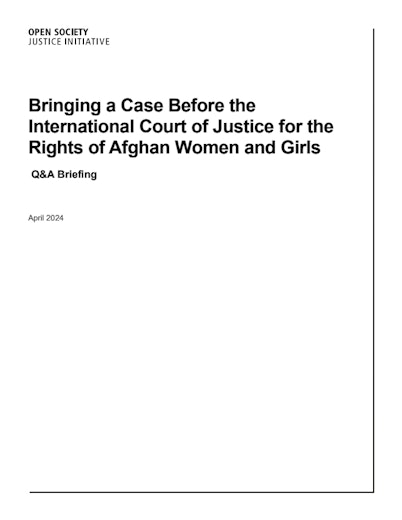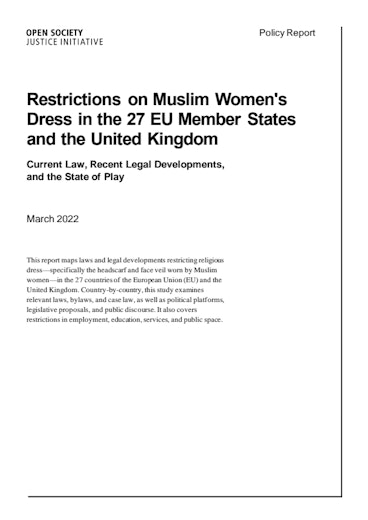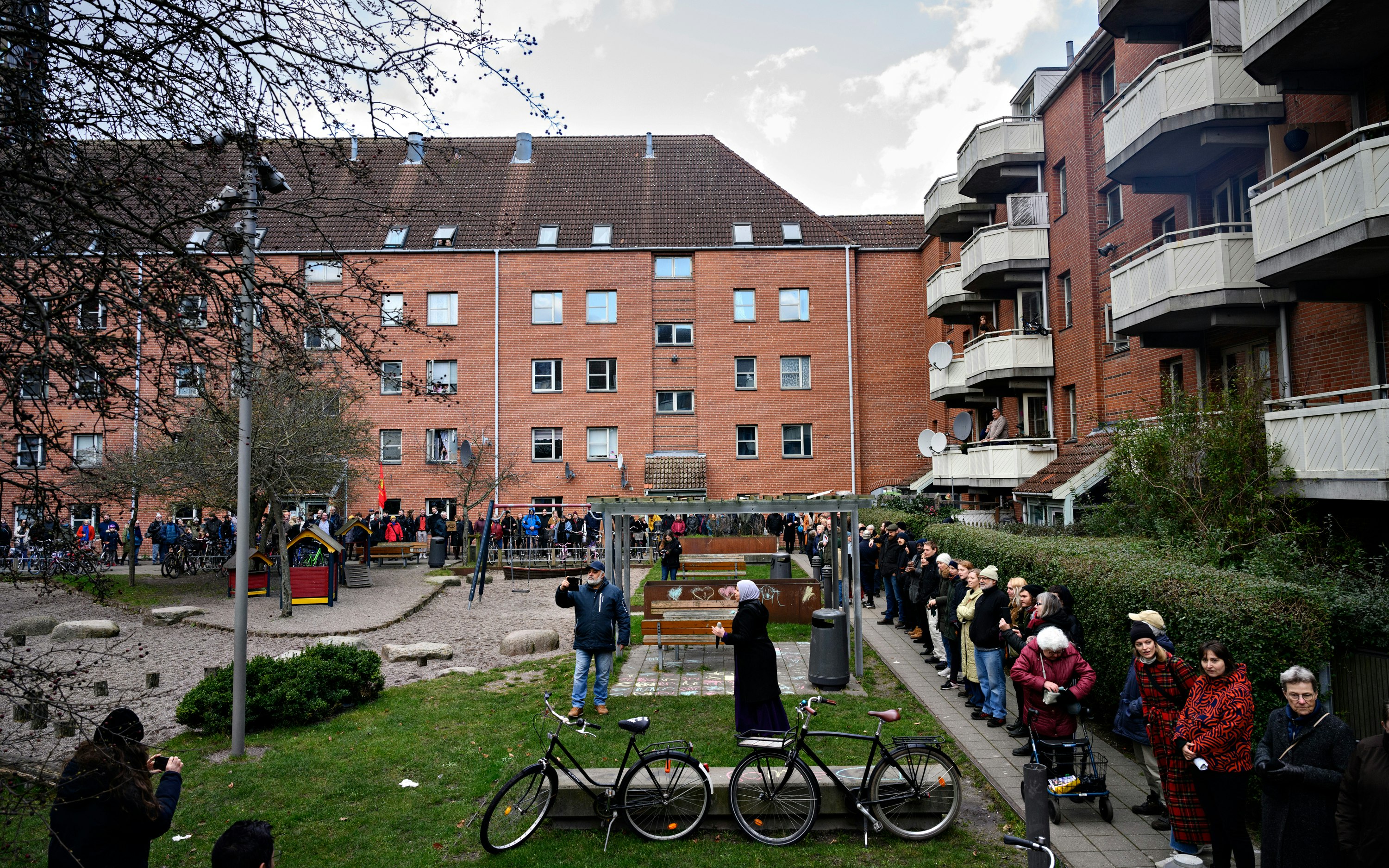Makhashev v. Russia
Racial Police Torture of Chechen Brothers
In 2004, three brothers were brought to a local police station in Nalchik where they were severely beaten by police officers and subjected to racist insults. Once released, the brothers filed a criminal complaint alleging that they were detained and beaten because of their Chechen ethnicity. Despite evidence supporting their allegations, almost no investigatory steps were taken to prosecute the police. The European Court of Human Rights found that their treatment amounted to torture, and that the authorities had failed to take the proper steps to investigate the brothers’ allegations, including investigating the racist motivation to the torture.
Facts
On the night of November 14-15, 2004, Ibragim and Adam Makhashev were stopped by Russian police officers outside the Forum Concert Hall in Nalchik, Kabardino-Balkaria. A fight had broken out earlier in the night club and Ibragim Makhashev had been stabbed and wounded. Ibragim and Adam were driven to the police station and detained. At the station, the police did not question the brothers, but instead subjected them to repeated beatings and kickings over several hours. The police hit them with rifle butts in the face and vital organs. Throughout the beatings the police shouted racist comments at the brothers and threatened them not to make any complaints. Both Ibragim and Adam Makhashev lost consciousness and bled profusely from their wounds. When their brother Islam Makhashev came to the police station in search of them, he was also detained and beaten.
The police released the three brothers in the middle of the night. Despite the threats not to do so, the brothers immediately went to the City Prosecutor's Office and lodged criminal complaints for the racist violence they had suffered. The following day they were examined by a doctor who documented their injuries. He concluded that Ibragim had suffered “multiple severe craniofacial injuries… moderate brain contusion, mutifragmental fracture of the left zygomatic region with dislocation of multiple bone fragments”. The injuries had been caused by “blunt, firm objects” which could have been “fists, boots”. Ibrahim underwent facial reconstruction surgery under general anesthetic in order to reposition his cheek bone with titanium plates. Adam had suffered a fractured nose, a closed craniocerebral injury with moderate brain contusion, contusions to his kidneys and ribcage, and extensive bruising on his face, back, lower back, neck, and chest. He had lost two teeth.
In response, the Nalchik City Prosecutor’s Office conducted a delayed and feeble investigation into the complaints filed by the Makhashev brothers. On April 13, 2006, nearly one and a half years after the incident, the Prosecutor’s Office closed the investigation and decided not to initiate criminal proceedings against the police officers concerned. The Makhashev brothers appealed this decision until the Criminal Chamber of the Supreme Court of the Republic of Kabardino-Balkaria issued a final order dismissing their appeals on November 3, 2006.
Open Society Justice Initiative Involvement
The Open Society Justice Initiative acted on behalf of the Makhashev brothers in a complaint to the European Court of Human Rights.
Arguments
Torture. The Russian authorities' racially-motivated ill-treatment of the Makhashev brothers constituted torture and inhuman and degrading treatment in violation of Article 3 ECHR (torture).
Ineffective Investigation. The lack of investigation into the ill-treatment violates the procedural limb of Article 3 ECHR.
Lack of a Remedy. The lack of an effective remedy violates Article 13 ECHR.
Liberty and Security. The illegal detention violates Article 5 ECHR (liberty and security).
Discrimination. The racist treatment of the Makhashev brothers constitutes unlawful discrimination in breach of Article 14 ECHR (discrimination) in conjunction with Article 3, Article 5, and Article 13.
In July of 2012, the European Court of Human Rights unanimously held that the brothers had been tortured by the local police and that the Russian authorities failed to adequately investigate their complaints of ill-treatment.
The Court concluded that the brothers had been tortured. Expert evidence suggested that their injuries were deliberately inflicted. The Russian government failed to provide a plausible alternative explanation for the brothers’ injuries. The brothers suffered serious physical harm, which together with the feelings of fear, anguish and inferiority produced by the beatings meant that the ill-treatment amounted to torture.
Additionally, witness testimony supported the Court’s finding that the brothers’ detention and subsequent beatings were motivated by their Chechen origin, particularly because no other explanation was provided for why force was used against them..
The Court also concluded that the authorities had failed to investigate the allegations of torture, and in particular the allegations that the torture was racially motivated. The authorities are under a procedural obligation to uncover any racist or ethnic motives to such violence, which was not done in this case, amounting to an additional violation of Article 3, taken with Article 14.
The Court awarded damages of €35,000 euro for each of the three brothers.
Makhashev brothers are detained and tortured by Russian police.
A Chamber of the First Section of the ECHR finds a violation of the Convention.
Application filed with the European Court of Human Rights.
Initial complaint letter was filed at the ECHR.
The Criminal Chamber of the Supreme Court of the Republic of Kabardino-Balkaria dismisses the brothers' final appeal.
Local prosecutor's office closes the investigation into the police abuse.
Related Cases
Timishev v. Russia
The Open Society Justice Initiative represented a man of Chechen origin in a challenge to racial profiling by Russian police in the Caucasus, where non-Slavs are disproportionately stopped and detained.
Williams v. Spain
With Women’s Link Worldwide and SOS-Racismo Madrid, the Open Society Justice Initiative filed a complaint to the United Nations Human Rights Committee on behalf of Rosalind Williams regarding a case of racial profiling by a Spanish police officer.
Related Work
Q&A: Bringing a Case Before the International Court of Justice for the Rights of Afghan Women and Girls
This paper considers 21 questions around the feasibility of bringing a complaint at the International Court of Justice against Afghanistan's Taliban for egregious and prevalent violations of women’s and girls’ rights.

Restrictions on Muslim Women's Dress in the 27 EU Member States and the United Kingdom
This policy brief and accompanying fact sheet map EU and UK laws and pending legislation restricting religious dress—specifically the headscarf and face veil worn by Muslim women.

Evidence Suggests Evictions in a Danish Neighborhood were Racially Biased. Now the Case is Before the High Court.
This case may set an important precedent for standards for discrimination in Denmark.
